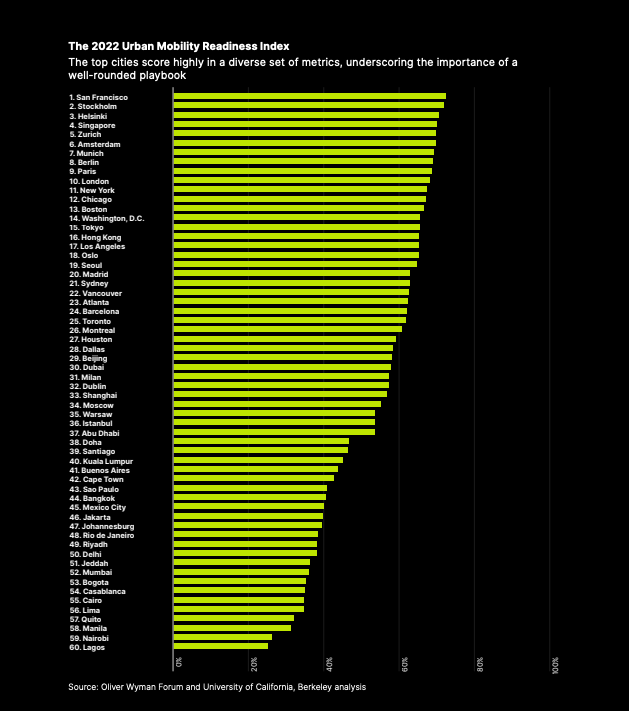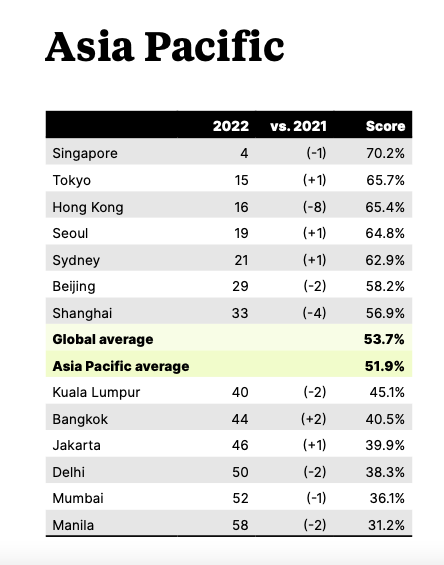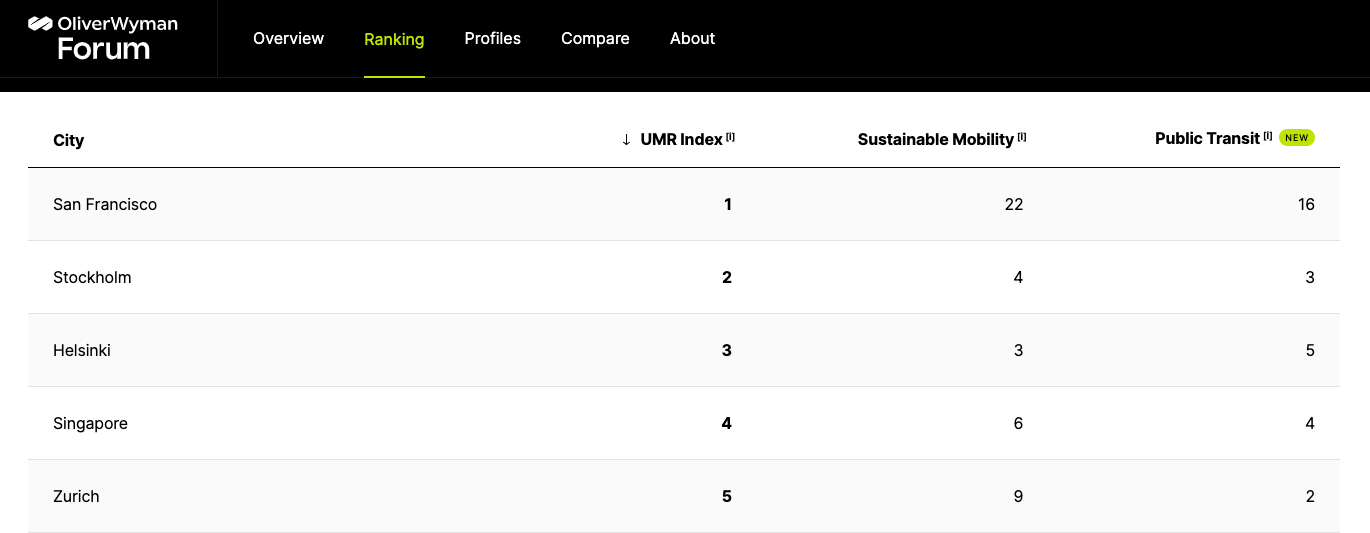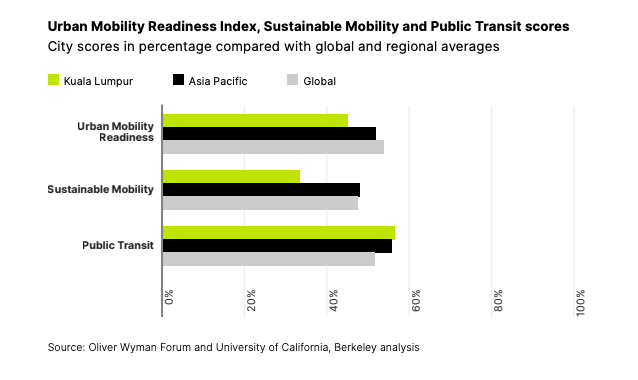KL Ranks 23rd Out Of 60 Cities For Most Efficient Public Transport Systems In The World
According to the metric, the ranking measured cities on their public transport density, efficiency, and utilisation rate.
One of the most important governmentally-allotted provisions to society is public transport, and in Malaysia, it's easy to say that this topic has been a heavily debated issue for years
Nonetheless, a recent study conducted by The University of California in Berkeley (also known as UC Berkeley) tested the scale which ranked 60 cities on their 'readiness for the next chapter in global mobility'.
Referred to as the Urban Mobility Readiness (UMR) Index 2023, the curation of the list included the consideration of multiple trends that were used as building blocks for discussing urban mobility. This included connectivity, public transit, electrification, and automation.
In addition to that, this year's UMR Index introduced a public transit sub-index, ranking how well cities are managing their public transit systems and how many commuters use them.
Alongside the sustainable mobility sub-index (which was introduced in 2021 and used to measure cities' efforts to build greener and more sustainable mobility ecosystems), the consideration of these two factors was critical to demonstrate a winning mobility system.
Here's a complete ranking of all 60 cities on the UMR Index:
Overall, Kuala Lumpur landed at 40th of 60 cities on the UMR Index.
In a breakdown of the overall placement, it was revealed that KL placed 23rd on the public transit sub-index, and 53rd on the sustainable mobility sub-index, seventh from last.
In a ranking of the Asia Pacific cities of the listed regions, Kuala Lumpur placed eighth overall, having fallen two spots from the 2021 placement
Providing insight to the comprehensive evaluation, the report expressed the clear diversity in systems that exist throughout the region.
"Asia Pacific encompasses leading, developing, and lagging cities with regards to urban mobility readiness. The leading mobility cities offer affordable, efficient, and high‑density mass transit systems alongside high‑quality roads with national road and rail connections," read the report.
Nonetheless, the report was also forthright about many cities within the Asia Pacific region having fallen in rank since 2020 due to the challenges in each of these nations to find a proper balance when approaching the COVID-19 pandemic.
Rounding off the top five cities on the UMR Index include Stockholm at second place, Helsinki at third, Singapore at fourth, and Zurich at fifth. San Francisco claimed the top ranking of the list, as the city ranked most prepared to tackle mobility in their area.
Even though Kuala Lumpur landed in the upper-middle rank on the list for public transport, an in-depth breakdown of the report also provides suggestions on what cities can do to improve their classification
According to the city profile breakdown for Kuala Lumpur, it was stipulated that the city itself benefited from a wide range of public transport modes, which included Bus Rapid and Transit to Rapid Rail. The statement noted that autonomous technology powers the metro system of which operates within the city.
However, the report also stated what lacked overall and efforts that could be improved as a whole. "Despite its strong public transit system, Kuala Lumpur has a high number of road traffic accidents — a rate that's among the worst in our Urban Mobility Readiness Index.
"The city's roads also provide low regional connectivity, as Malaysia has a fragmented road network. Few residents currently bike or walk on a daily basis, and the city would benefit from investment in cycling infrastructure and in sidewalks," continued the report.
Providing the scores on the index and the two sub-indexes, there was an undoubtable issue with sustainability for Kuala Lumpur when compared to the global average.
While the public transit sub-index for Kuala Lumpur exceeded both the Asia Pacific and global average percentile at 56.5%, the city severely lacked in the sustainable mobility sub-index, which held a 33.4% to the global average's 47.5%.
As for the overall UMR Index ranking, the percentile for Kuala Lumpur also staggered beneath the Asia Pacific average of 51.9% and the global average of 53.7%, at just 45.1%.
All in all, the report by UC Berkeley displays the clear potential that lies within the public transport system of Kuala Lumpur — though matters of sustainability may be the missing piece to what could make the city a leader in this sector on a global scale
Click here to check out the entire UMR Index for 2023 on the OliverWyman Forum website.
Click here for a full and in-depth report of the placements of all 60 cities or here for an executive summary of all their findings.
To check out Kuala Lumpur's city profile for the analysis behind the overall ranking, click here.



